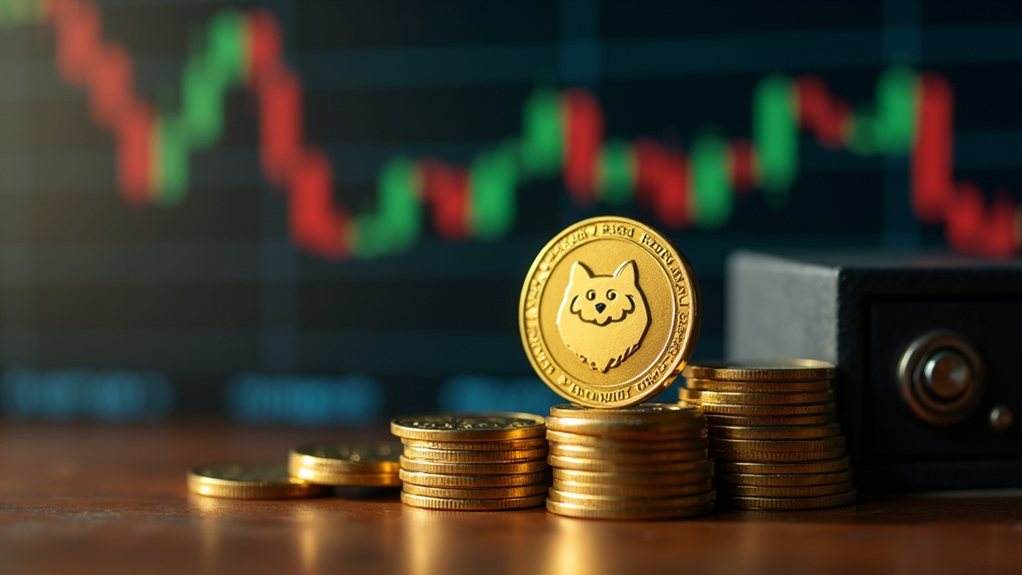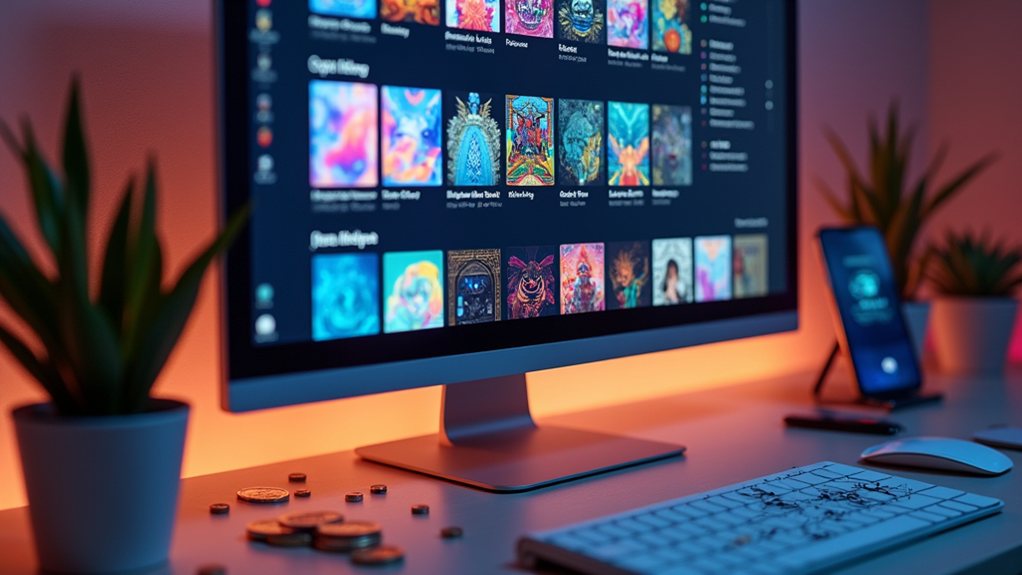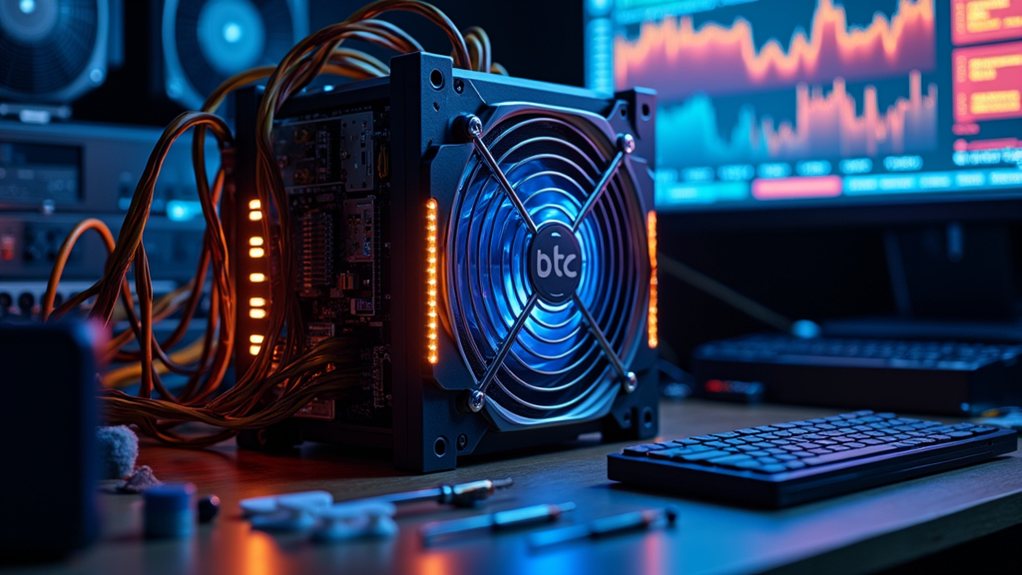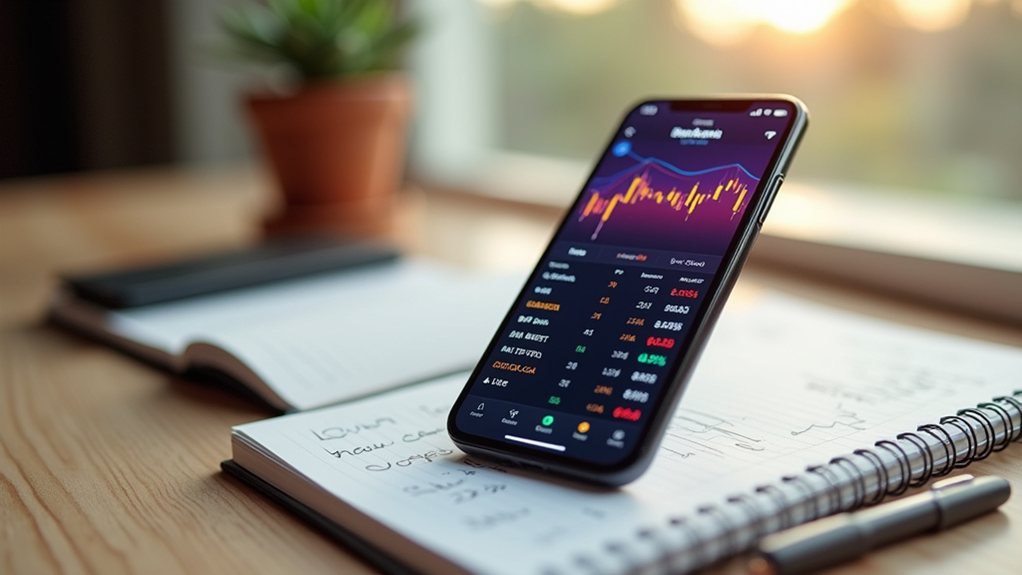Dogecoin ownership is remarkably concentrated. Exchanges dominate, with Robinhood holding a staggering 30.9 billion DOGE and Binance possessing 10.6 billion. Just 20 wallets control over half the supply. Elon Musk, the self-proclaimed "Dogefather," likely owns a significant chunk. Corporate adopters include Tesla and AMC Theatres. The wealth distribution is laughably uneven – only 535 DOGE millionaires exist. The full picture of who controls this meme-turned-money reveals surprising power players.
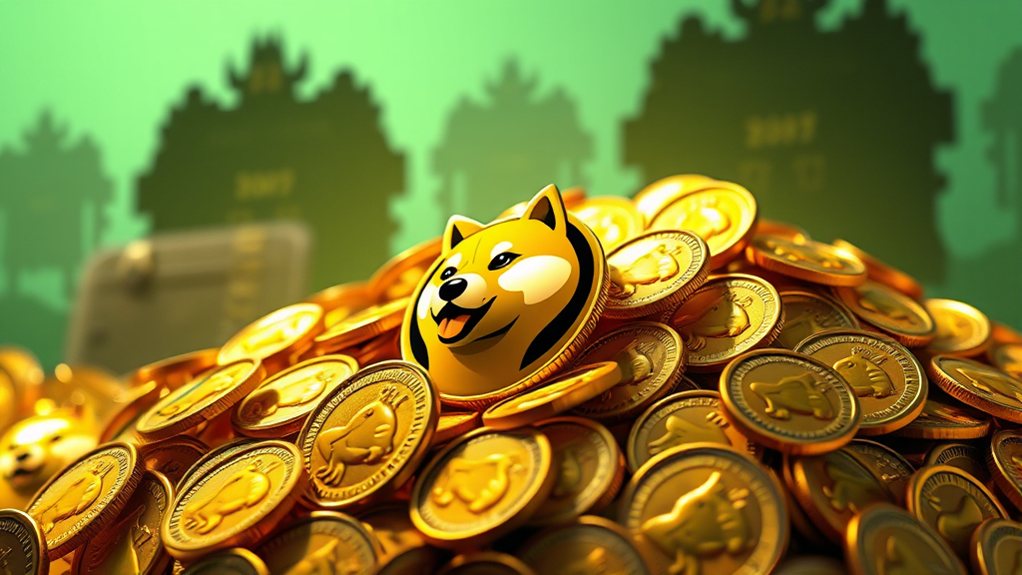
Who really controls the meme-turned-cryptocurrency sensation that's captivated everyone from tech billionaires to average investors? The answer might surprise you. Or not, if you've been paying attention to the crypto world's worst-kept secrets.
Let's talk numbers. Exchanges dominate Dogecoin ownership. Robinhood sits on a mountain of 30.9 billion DOGE, easily making it the largest holder. Not even close behind is Binance with 10.6 billion. Cryptsy holds 5 billion, while an unidentified wallet—mysterious much?—contains 4 billion DOGE. These aren't small amounts. They're whale-sized holdings that give these entities significant market influence.
The concentration of wealth is staggering. Just 20 wallets control over half of all Dogecoin. Let that sink in. The top 100 wallets? They've got 63.86% of the supply. Meanwhile, millions of regular folks share the leftovers. The total supply of Dogecoin currently stands at 9.15 billion DOGE. Only 535 Dogecoin millionaires exist in 2024. Not exactly the decentralized utopia crypto evangelists preach about.
When 20 wallets control half of Dogecoin, we're not witnessing financial revolution—we're watching wealth concentration in digital form.
Celebrity involvement has certainly boosted DOGE's profile. Elon Musk, the self-appointed "Dogefather," likely owns a substantial chunk, though he's never disclosed how much. His companies Tesla and SpaceX accept DOGE for merchandise. Mark Cuban's Dallas Mavericks take the cryptocurrency for tickets and merch. Snoop Dogg and KISS frontman Gene Simmons have publicly supported it too. Funny how the rich get vocal about their investments.
The original creators? They've moved on. Jackson Palmer and Billy Markus created Dogecoin as a joke in 2013. Neither remains involved with the project. The Dogecoin Foundation now steers the ship, holding an undisclosed amount of the cryptocurrency.
Corporate adoption continues to grow. Besides Tesla and the Mavericks, AMC Theatres and Newegg now accept DOGE payments. Spirit Blockchain Capital owns an undisclosed stake. These companies aren't getting involved out of the goodness of their hearts. There's profit potential here.
Perhaps the saddest part of the Dogecoin story is the lost coins. Millions of DOGE sit in forgotten wallets, with passwords lost to time. Early miners who thought they were collecting a worthless joke now kick themselves. The Dogeparty Burn Address permanently removed 1.85 billion DOGE from circulation, originally linked to an abandoned project. Some exchange wallets remain inactive, their contents potentially lost forever.
The reality? A tiny fraction of wallets—just 0.002%—control two-thirds of all Dogecoin. The cryptocurrency that started as a joke about financial inequality has ironically recreated the very wealth disparity it mocked. Some revolution. Next time someone tells you crypto will democratize finance, show them these numbers.
Frequently Asked Questions
How Is Dogecoin Ownership Distributed Across Different Countries?
Dogecoin ownership varies dramatically worldwide.
The US leads the pack with 31.6% of crypto holders owning DOGE, thanks to Elon Musk's hype and robust exchange access.
Australia follows at 29%, while Norway sits at 27.4%.
Turkey's situation is fascinating – economic chaos has 8.2% of their population searching for Dogecoin info.
Global average? Just 18.5%.
Developing economies show higher trading activity.
Blame inflation, celebrity worship, or pure speculation.
What Percentage of Dogecoin Is Owned by Institutional Investors?
Based on available data, institutional investors owned approximately 36.17% of all meme coin holdings in April 2024, with Dogecoin being their preferred choice.
Institutional DOGE holdings peaked at $293.7 million before dropping to $139 million in May. Major players include Robinhood (30.9 billion DOGE) and Binance (10.6 billion).
Curiously, institutions allocated more heavily to DOGE than retail investors did – 36% versus 24.5%. Quite the vote of confidence, huh?
Has Dogecoin Ownership Concentration Changed Significantly Since Its Inception?
Dogecoin's ownership has dramatically decentralized since 2013.
Early days? Super concentrated – top 100 addresses hoarded 67% of coins.
Fast forward to 2023, top 10 wallets control just 41%, down from 50% in 2021.
Retail investors flooded in during the 2021 hype, diluting whale dominance.
Address count exploded 400% during that period.
Now over 4 million unique addresses hold DOGE.
Still concentrated? Sure.
But way less than before.
Do Any Celebrities Besides Elon Musk Own Significant Dogecoin?
Yes, several celebrities beyond Elon Musk own significant Dogecoin.
Snoop Dogg has been backing it since 2013 and released "Snoop Doge" NFTs.
Mark Cuban's Dallas Mavericks accept DOGE payments.
Gene Simmons dropped $300,000 on the coin in 2021, dubbing himself the "God of Dogecoin."
There's also Glauber Contessoto—the "Dogecoin Millionaire"—who turned $250,000 into $2 million during the 2021 bull run.
He's still holding.
How Many Inactive Wallets Hold Substantial Amounts of Dogecoin?
Dormant Dogecoin wallets pack serious punch.
The data shows multiple massive sleepers – one with 870,019 DOGE inactive for 11 years, another holding 1.5 million DOGE dormant for 9.3 years.
A whopping 1.2 million DOGE wallet just woke up after a 9-year slumber.
Can't forget the Kraken wallet with 18 million DOGE ($3 million) sitting untouched for 5+ years.
The top 100 dormant addresses? Loaded.

